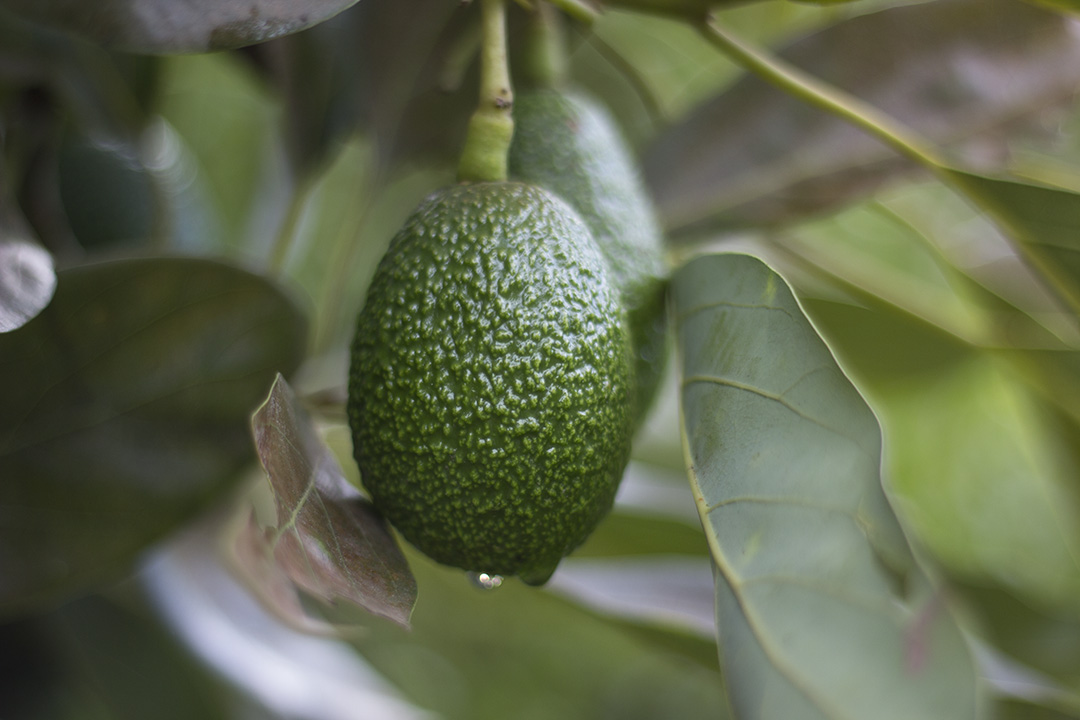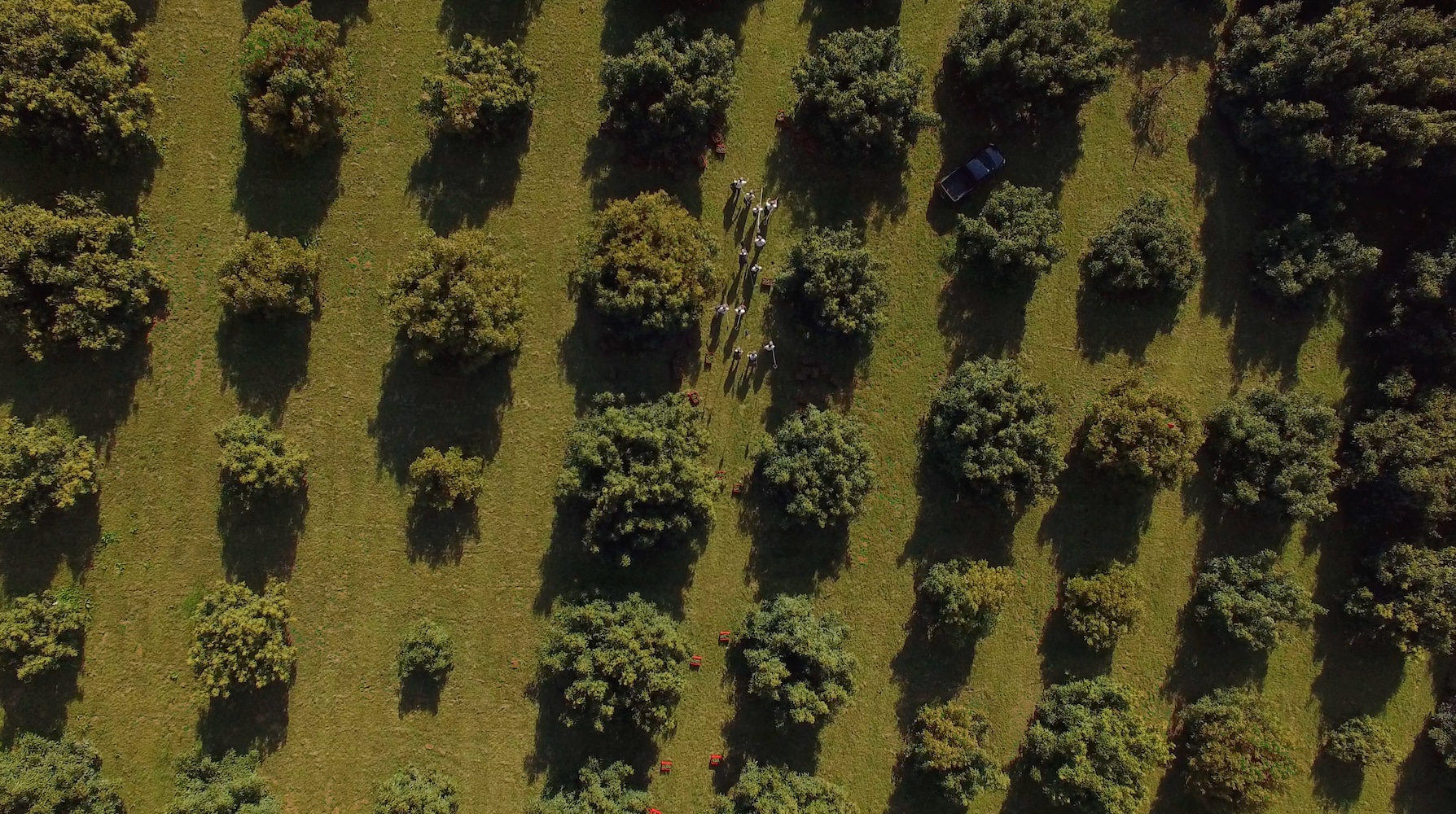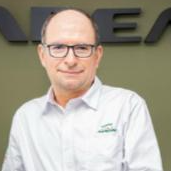
A worker picks avocados on an orchard in Michoacán, Mexico.
American demand for avocados in the last decade has surged with a striking velocity. Annual imports of Mexican avocados into the United States doubled from 1.2 billion to 2.4 billion pounds between 2014 and 2021 to satisfy the growing appetite, which only continues to increase.
Despite doubling their annual output, Mexican avocado orchards have not needed to increase their consumption of natural resources or even alter their sustainable agricultural practices to accommodate this growing demand.
How? It’s simpler than you may think. Sustainability is not an isolated initiative, corporate fad, or economic reaction but a fundamental pillar of the 54,000 independent avocado orchards in Michoacán, Mexico. The environment in Michoacán is and has always been ideal for growing avocados year-round. No one knows that better than the thousands of Mexican avocado farmers who, over generations, have ingrained sustainability into their work to preserve the beloved resources. What corporate and federal organizations call “sustainable policies” today are what our growers have called “avocado farming” since 1997.
That’s when the Association of Avocado Exporting Producers and Packers of Mexico (APEAM) was born. APEAM is a voluntary association that represents more than 34,000 farmers and 90 packing houses in Mexico — the only farmers and packers with clearance to export avocados to the U.S. We are the world’s leaders in avocado production, supplying nearly 90 percent of the avocados consumed in the U.S. As such, we are committed to the stewardship of the irreplicable, natural gifts in Michoacán — heavy rainfall, nutritious volcanic soil, and biodiversity — that make our avocado farms so fertile in the first place and such an unparalleled level of sustainability possible, too.

The fruits of sustainability
The magic of Michoacán is in its land, water, and biodiversity, and APEAM is committed to using these resources responsibly.
The region’s rich, volcanic soil provides nutrients to our avocado trees and surrounding forests that act as a natural fertilizer, reducing the need for any agrochemicals in the orchards. The area also receives abundant natural rainfall (around 64 inches of precipitation annually), allowing avocado farmers to irrigate their orchards naturally. In fact, 61 percent of avocado orchards in Michoacán rely on rainfall as their primary source of irrigation, with an additional 36 percent who use sustainable micro sprinkling and drip irrigation systems. That’s 97 percent of 54,000 orchards that use natural or sustainable irrigation.
But APEAM’s impact extends beyond the orchards themselves. To preserve the neighboring natural ecosystems, APEAM has worked hard to improve its Comprehensive Forest Conservation Program. Participating nurseries and reforestation programs have planted more than 3.5 million forest and pine trees in avocado-producing municipalities in Michoacán over the past decade. Partnerships have been integral to APEAM’s sustainability strategy, including working with the Mexican Hass Avocados Importers Association (MHAIA) to run another reforestation program, which since 2017 has planted an additional 1.6 million pine trees in Michoacán’s Monarch butterfly reserve.
APEAM has also invested in training and equipment for over a dozen fire brigades. The forest fire prevention and control program includes the Forest Fire Early Warning system, which helps detect potential forest fires and hot spots in avocado exporting municipalities.

Inspiring a future as green as our past
Avocado growers and their families have staked their livelihoods on the land, water, and environment in Michoacán for generations. More than two-thirds of our orchards are small farms of less than 5 hectares (a bit over 12 acres), run independently by families. Although APEAM cannot technically set or enforce sustainability practices and policies, we can share our priorities across the association to help ensure long-term viability and continue to guarantee responsible production without compromising natural resources.
Contributing to the balance between economic growth and environmental conservation is at the heart of APEAM’s mission. Continuing to align industry practices with international benchmarks is our top priority to secure a more resilient and environmentally responsible future. The avocado might be seeing a surge in popularity in the U.S., but it has been a central product for the Mexican economy for decades. The well-being of thousands in Michoacán depends on it. So, while we anticipate and expect the avocado industry’s growth to continue, we are committed to that growth happening sustainably — it’s the only way we know how to grow.
This article series is sponsored by the Avocado Institute of Mexico
Images courtesy of the Association of Avocado Exporting Producers and Packers of Mexico

Julio Sahagun currently serves as the President of the Board of Directors of the Association of Avocado Exporting Producers and Packers of Mexico (APEAM) and is CEO of the avocado packing plant, Comercializadora de Frutas Acapulco. Among previous roles, he served as President of the Board of Directors of the Monarca Credit Union in Zamora, Michoacán. Sahagun is an avocado producer in the states of Michoacán and Jalisco.














